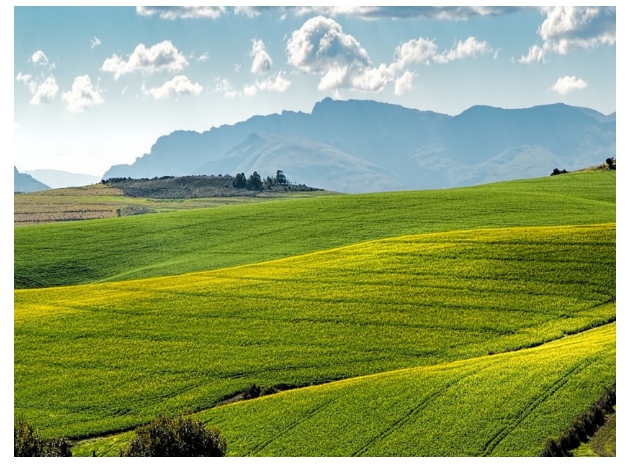The agriculture sector has always been a problem in European countries. Agriculture makes for a minor portion of Europe’s gross domestic product (GDP), and the general sensitivity of the European economy to changes affecting agriculture occurs to be minimal. Because of the advanced approach towards technology, even Selling agricultural land in Switzerland online is now very quickly possible.
Modest family farms control Switzerland’s agriculture in comparison to their neighbours. Farming, on the other hand, is often quite intensive. The intensification trend is expanding to mountainous areas as well.
About The Land
Farmland makes about 36% of Switzerland’s total land area. On the Central Plateau, in the southern Jura, and the Pre-Alps of eastern Switzerland, more than half of the surface area is utilized for agriculture. In Ticino, Valle Mesolcina GR, and portions of Valais, the share of agricultural land is low. Arable crops (30.9 per cent), permanent grassland (34.4 per cent), and Alpine agricultural regions (summering pastures, 34.7 per cent) each account for nearly a third of Swiss agriculture.
Climate, accessibility, and surface structure all play a role in dividing agricultural land into separate zones. The plain region, which accounts for 47 per cent of farmland (areas utilized year-round, excluding summering pastures, totalling 1049 km2), is the best ideal for agriculture; the hill region accounts for 25%, and the rest is separated into mountain regions I through IV.
Since 2000, the amount of agriculture has shrunk by roughly 23.4 km2. Cultivated land is declining twice as quickly in valley bottoms as in colline and mountain zones, giving way primarily to building development (settlements, industrial plants, roads). The loss of grassland in mountainous areas is mainly due to forest encroachment on marginal, labour-intensive land.
Policy
The Swiss Confederation develops circumstances for Swiss farming families to fulfil their social obligations through its agricultural policy. According to Article 104 of the Swiss Federal Constitution, the farm sector must contribute to the reliable provision of foodstuffs to the population, the conservation of natural resources and the upkeep of the countryside, and decentralized population settlement of the country through a sustainable and market-oriented production policy.
On February 12, 2020, the Federal Council issued a Dispatch on establishing the agricultural policy after 2022 (Agricultural Policy AP22+). It puts the agricultural sector in a better position to address public concerns, provide a framework to focus more on the added value, and even sell agricultural land online in Switzerland.
Farming efficiency is to be improved. Environmental consequences and nonrenewable resource usage will decrease even further. Three AP22+ draught decrees (Agriculture Act, Federal Act on Farmland Law, and Animal Diseases Act) have been suspended by the Economic Affairs and Taxation Committee until the Federal Council has finalized its commission postulate with a report. By the year 2022, this should be the case.
Ownership
The Federal Law on Rural Land (BGBB, SR 211.412.11) encourages rural farmers to own land to prevent Swiss agricultural land and property from being sold as equity capital or speculative asset. As a result, international and local investors will almost always need a permit to buy an agricultural business (i.e., all of its agricultural land, buildings, and facilities used to produce food) (Article 7, Federal Civil Code). Or Agricultural land (used for agriculture or horticulture (Article 6, Civil Code).
Exceptions to this need are outlined in Article 62 of the Federal Law on Rural Property and include circumstances of inheritance or land acquisition by a co-owner, for example.
Generally, acquiring agricultural land necessitates registration with the land registry (Article 656, Civil Code). If there are no reasons for denial, permission to buy agricultural property is issued.
Generally, acquiring agricultural land necessitates registration with the land registry (Article 656, Civil Code). If there are no reasons for denial, permission to buy agrarian land is issued (Articles 61(2) and 63, Federal Law on Rural Land). The reasons for refusal were:
The land got sold at an exorbitant price.
There is no self-management. Self-management is a broad premise of Swiss agricultural land law that states that the buyers will work the farm property themselves.
In the absence of self-management, a permit may be issued under the following conditions, as laid out in Article 64 of the Federal Law on Rural Land:
The acquisition is for long-term maintenance of a leased business, structural improvement of a leased business, or the establishment or maintenance of an experimental or school enterprise.
Under Article 24 of the Spatial Planning Act of June 22, 1979, the buyer receives permission for non-agricultural use of the property.
The purchase is for the extraction of mineral resources permissible under spatial planning legislation. The area is no more significant than the company’s requirement for an acceptable raw material reserve or replacement land in the extraction region for a maximum of 15 years in each case.
If the land doesn’t get used as intended within 15 years after purchase, it must get sold by terms of the agreement. This information highlights selling agricultural land in Switzerland online.
We are sure that this article will assist you in getting miles closer to your goal.
Also read about:
Dental Biomaterials of Dental Consumables Market With Impact of COVID 19 Top Companies Emerging Trends
Working From Home Tax What You Can and Can& 8217 t Claim
How to Choose Online Loan Offers Available In Switzerland
















